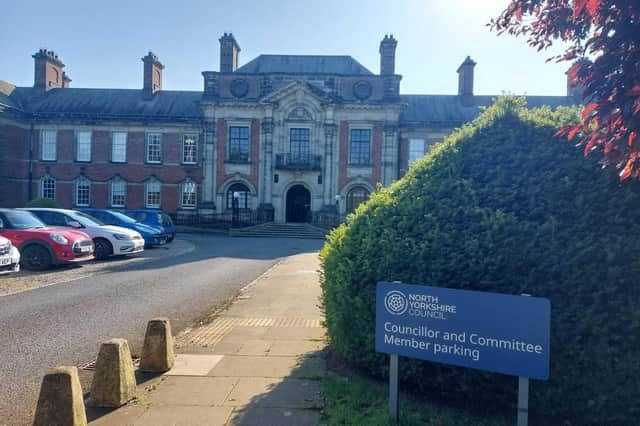Council’s religious education advisor criticised for ‘offensive’ comments about Christianity


The council’s Standing Advisory Council on Religious Education (SACRE) meets every few months to advise on matters related to worship and religious education in schools.
The committee includes councillors as well as representatives from all the major religions.
Advertisement
Hide AdAdvertisement
Hide AdProfessor John Adams, who is a regular at the meetings on behalf of Humanism, delivered a presentation about the faith at a meeting on September 19.


But his comments have caused a row after he described creation stories that are believed in Judaism, Christianity and Islam as “absurd” and said a passage in the Bible where God creates light a couple of days before making the sun was “a very neat trick”.
Cllr George Jabbour (Conservative, Helmsley & Sinnington), who was chairing the meeting as a substitute, told the Local Democracy Reporting Service that he was “horrified” by Prof Adams’ remarks which he called “offensive”.
During the same meeting, Cllr Robert Heseltine (Conservatives & Independents, Skipton South & East) had to leave early for unrelated reasons and said “God bless” before Prof Adams asked “which one?”.
Advertisement
Hide AdAdvertisement
Hide AdCllr Jabbour told Prof Adams that his remark to Cllr Heseltine was not respectful and requested that the exchange was noted in the minutes.
The National Association of Standing Advisory Councils on Religious Education says committee members “should be committed to education and to respecting the views of others” as they have a responsibility to support children’s learning in religious education.
Cllr Jabbour added: “Having attended the meetings of SACRE since 2022, none of the other speakers felt the need to use insulting language about other faiths and beliefs during their presentations.”
A spokesperson for Humanists UK said: “During the meeting on September 19, Professor Adams provided his view on humanism and his personal beliefs, he provided room for questions to be asked, of which there were none. His presentation concluded with a comment that ‘We are… most assuredly not in any sense “anti-religion”, but we do reserve the right to use our human faculties, in a free pluralist society, to examine different beliefs …and for ours to be examined in return.’
Advertisement
Hide AdAdvertisement
Hide Ad“The chair thanked Professor Adams for his presentation and said it would be good for these to continue. There were no objections raised at the time, or since with Professor Adams.
“Humanist representatives work as part of SACREs to support the inclusion of content on humanism in religious education, and are committed to objective, pluralistic education and to respecting the views of others. This may on occasion lead to disagreements but we would hope that these could be dealt with openly in SACRE meetings.”
The LDRS understands that no formal complaint has been made to North Yorkshire Council regarding Prof Adams comments at this stage.
The council sent a statement from Cllr Alyson Baker (Conservatives, Hillside & Raskelf) who is the usual chair of the SACRE meetings but was not present on September 19.
Advertisement
Hide AdAdvertisement
Hide AdCllr Baker said: “Councillors and members of other organisations or groups who are appointed to council committees are expected to act in accordance with the general principles of conduct in public life as specified in the council’s constitution.
“The Standing Advisory Council on Religious Education (SACRE) is a forum in which differing views of faith, belief and religion are expressed and debated and which helps inform the development of the approach to religious education in schools.
“There will be times when there are different views, but it is important that differences are addressed in respectful ways that sometimes need to recognise the need to agree to disagree and move on to focus on the task at hand.”